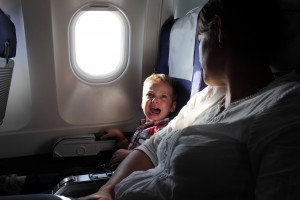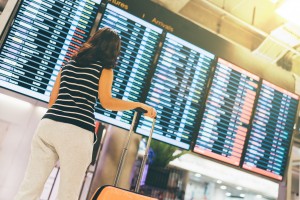Ultimate holiday survival guide: travel ideas and tips to reduce stress
Posted on
For some, the holiday period is the stuff of dreams.
It can be a time of quiet reflection, catching up on the pile of books you’ve been meaning to read, or heading for fun in the sun or snow fields.
For others, holidays can turn out to be less fun than a root canal procedure.
It’s been suggested there are three basic problem areas that cause holidays to be sabotaged _ sensory overload, disruptions to routines, and social demands. If you have a family member on the autism spectrum, addressing these areas in the lead-up to a trip or holiday can have a huge impact on the experience.
Beyond simply preparing your family member for being in a different place, Amaze says it is also useful to think about their individual needs.
For example, do they tend to wear the same thing every day and will it be appropriate in the place you’re going?
If you’re going skiing but your family member will only tolerate wearing shorts, you will need to prepare them for wearing more clothes.
Deciding where to go
People on the autism spectrum may have sensory needs, anxiety, or special interests which may make one holiday destination preferable to another.
For example, people on the autism spectrum may be hypersensitive to noise. It might be helpful to choose a hotel in a quiet location or ask for a hotel room which isn’t near noisy public areas, such as the pool area or bar.
Parks Victoria and Amaze joined forces to make going to a park a more enjoyable experience for families and children on the autism spectrum. The result of the collaboration is social script resources for families with young children who visit Serendip Sanctuary in Lara and Brimbank Park.
Amaze has also worked with Sovereign Hill and Museums Victoria in the development of resources to assist visitors on the autism spectrum.
Also of note is that with support from Amaze, Northland Shopping Centre has established a world first quiet room for people on the autism spectrum who may need time out from the noise, crowds and other sensory stimuli of a shopping centre.
Preparation
Once you have decided on your destination, you should tell your family member about the trip.
Some people on the autism spectrum find change difficult, so “surprising” them can result in anxiety or behaviours of concern.
In fact, preparation offers the best chance for a successful and happy holiday. One suggestion is to create a booklet about the trip, including pictures from brochures and other sources.
This support will help your family member to understand where they are going and what it will be like when they are there.
However, be aware they may take things very literally and be upset if the holiday is not the same as the images they have seen.
Be sure to explain the holiday will resemble these images but some details may differ. Another idea is to create a timetable of what you will be doing on each day.
How structured this timetable needs to be depends on how much your family member relies on routine.
You could begin by listing the times you will have breakfast, lunch, and dinner.
Taking flight
If your family member has not travelled on a plane before (or if you are going via a new airport or on a bigger/smaller plane), you may like to visit the airport before your holiday.
This will help your family member to understand what the airport is like, as well as allowing them to experience the journey to the airport before you go.
You may wish to contact the airline and explain to them you will be travelling with someone on the autism spectrum and explain their needs.
This will help the airline staff to support your family before and during the flight.
Check-in
Discuss your check-in arrangements with the airline. You may be able to check-in early and avoid waiting in a queue or sit in a quiet area while you wait for your flight to be called.
There may be an option to board first or last, depending on what would be most beneficial.
You could also make enquiries about sitting in either the front or back row of the plane, where there is often more room.
However, this is often where aircraft toilets are located and there may be a high level of activity, smells, or noise from other passengers.
Travel time
To help your family member cope with noise in the plane, particularly during take-off and landing, you may consider using headphones.
Perhaps your family member might like to listen to a familiar piece of reassuring music while in the airport or during the flight.
There are also noise-cancelling headphones which are designed to shut out surrounding noise, including the low frequency sounds of aircraft engines.
As electronic devices may not be allowed during take-off landing, you should to discuss this option and alternatives with the airline before your flight.
There may also be other items which would keep your family member occupied and happy while travelling.
These might be favourite objects they like to have with them. If your family member likes to watch movies or play games on their iPad, making sure it is charged before you travel is essential.
For a longer flight or road trip, you might like to bring additional power packs to keep the iPad going.
Remember to also bring any items which are ‘comforters’ at home to help your family member relax while away.
You may like to bring a pillow, bed linen, or a sleeping bag as the familiarity of items from home can help some people to feel more relaxed on the plane and when you arrive in a new environment.
Delays
Even the best-planned holiday may be affected by unexpected delays.
A person on the autism spectrum may find it difficult to deal with these unplanned aspects of the trip.
Engaging them with a favourite activity during the wait may help. As a part of your preparation, you could write a social script to explain that delays may occur and some waiting will be necessary.
Medication
If your family member takes regular medication, you may need to discuss this with their doctor before the holiday.
It is wise to take all medications for the length of the stay, as well as some extras in a separate bag in case of loss/delay of luggage.
Some countries will require a letter from your doctor about the medication you’re carrying (that country’s embassy will be able to provide more specific information on their requirements).
It is also important to carry the medication in its original packaging.
Life on Holidays
Our lifestyle when we are on holidays tends to be a bit different than when we are at home.
We may sleep later or eat on a different schedule. Before the holiday, you may like to talk with your family about some simple ‘holiday rules’.
This is an opportunity to discuss what will be different and what will be the same on holidays.
Your family member will have a chance to understand what will happen and what your expectations are of them for the duration of the holiday.
Try to keep the focus of this conversation positive. Write down the rules you agree to using clear language.
Once you have decided on these rules, everyone should stick with them and be consistent.
Be Flexible
No matter how much preparation you do, there is no guarantee everything will go perfectly.
For some individuals on the autism spectrum, new behaviour patterns emerge when on holiday or in an unfamiliar environment.
Be mindful of the challenge being in a new situation can pose to a person on the spectrum.
Try to be patient and flexible. Don’t get too fixated on having the “ideal” holiday and try to get the most from this experience for every member of the family.
Additional tips
- Finding out when shopping malls are least busy, and shopping during those times.
- Keep a sensory overload emergency kit with you (eg noise-cancelling headphones, sunglasses, ear plugs, squeeze ball, aromatherapy lotion and anything that might help avert sensory overload).
- It’s less than ideal for your child’s bedroom (his/her refuge) to become the guest bedroom for visitors.
- If staying at home, try to avoid cancellation of regularly scheduled activities such as music or sport.
- Write social scripts for how your child will be expected to behave at various holiday related functions, and then role play the behaviors.
- Shop with their child for holiday clothing.




